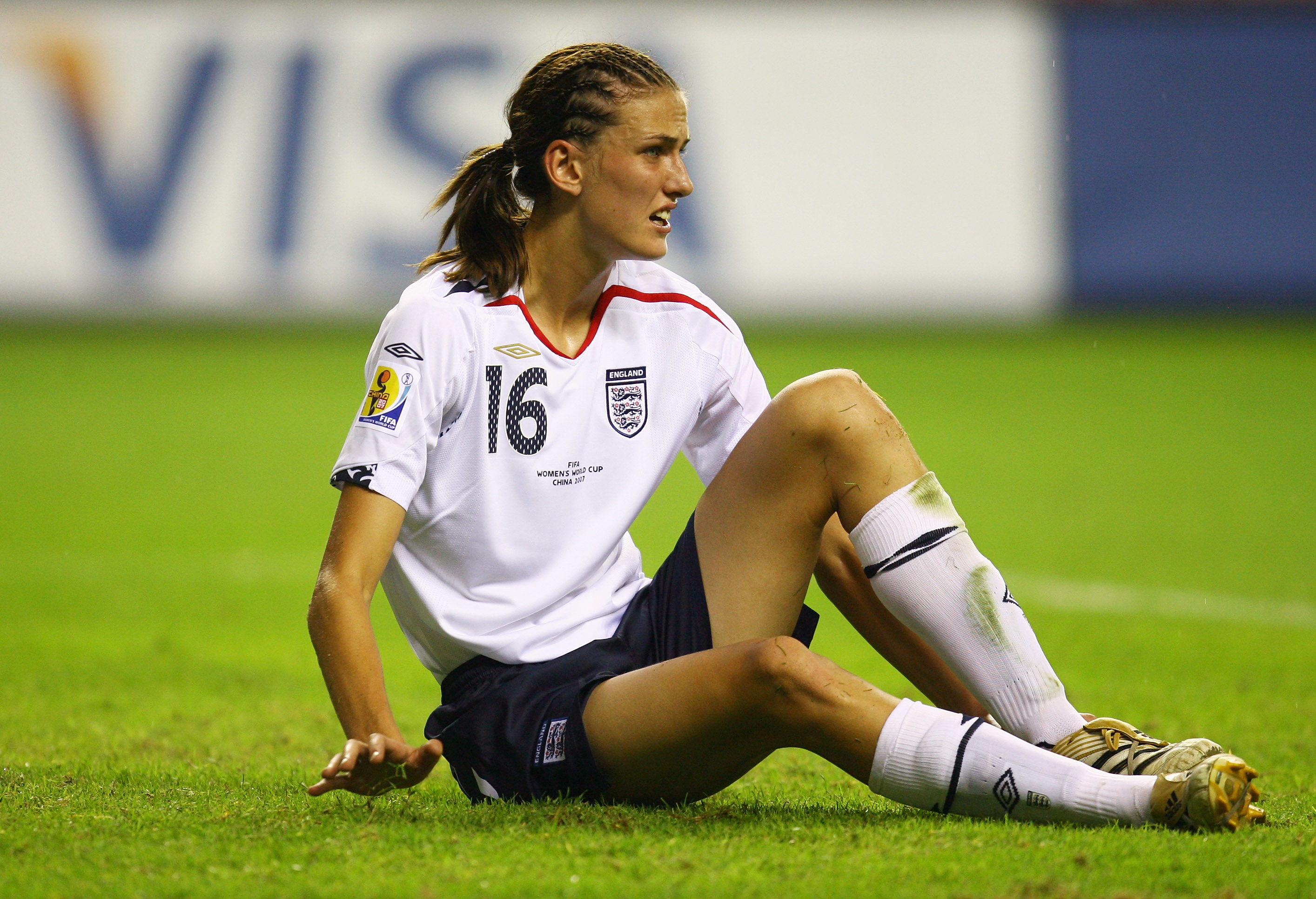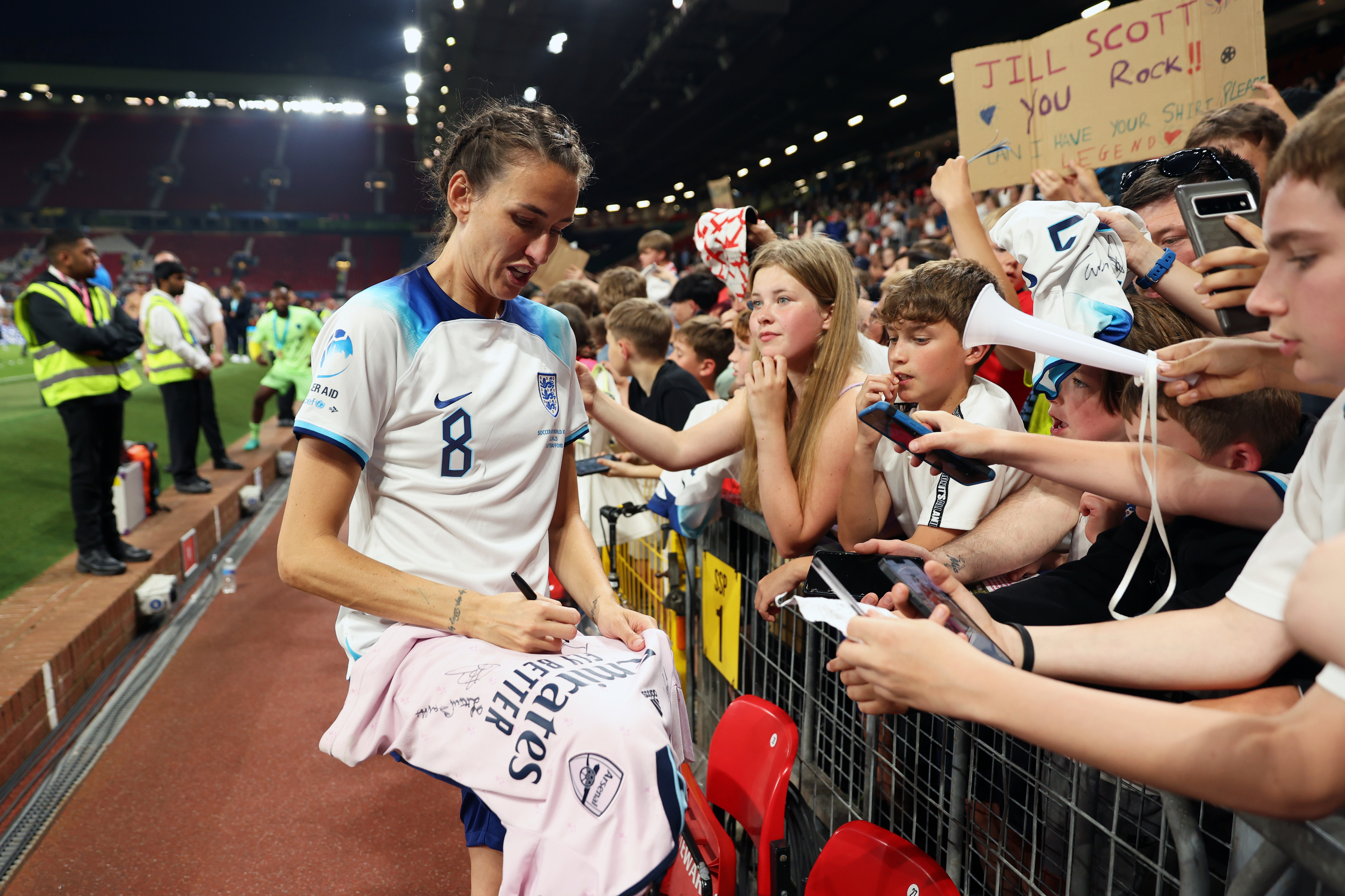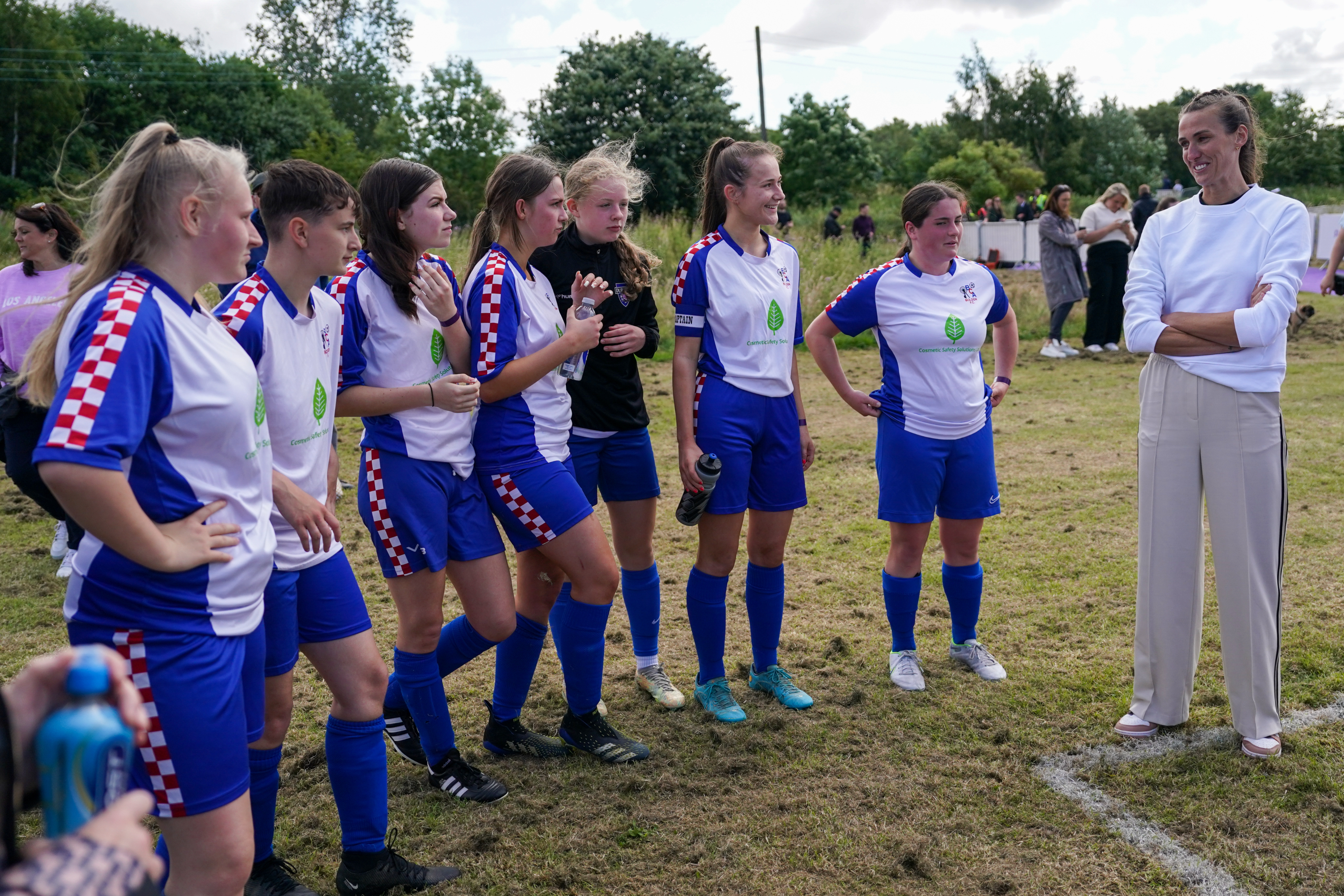The world of sport has a history of being unfair to anyone who is anything other than a cis white man but are we starting to see active change? Today Heineken is launching "Cheers to the real hardcore fans" with ambassadors Virgil Van Dijk and Jill Scott MBE to show that you don't have to fit a particular mould to be a hardcore fan.

Speaking to Jill Scott we look at how the landscape of football has changed and what is still needed to achieve true diversity and inclusivity not just in the sport but also among fans.

Jill, you're a legend in the footballing world and played the sport for over 30 years so have seen first-hand how the landscape has progressed. Comparing 2024 to when you first started playing football, would you say we're on the right track to making the sport more inclusive?
Yeah, we're definitely on the right track. When you say 30 years, that makes us feel old haha, but I think it's like night and day to when I first started. I speak a lot about being the only girl when I'd go up to a football camp, it'd be like 100 boys and just me. A real night and day moment for me was, fast forward 20 years when I started doing my soccer camps and I would get 100 girls turning up to play football. If I go back 30 years, I just feel like that would never have happened.
I feel like the inclusivity is definitely getting better. People do feel like football is for everybody now, compared to the past – Look at the WSL, the women's league was classed as the equivalent to the men's Premier League, but sometimes there will be 50,000 fans now they've opened it up to the main stadiums like Arsenal Chelsea, so you could just really feel that growth.
In the past, we've spoken a lot about growth and the intentions of that growth but now we can actually see it. I think that's what makes me the happiest.

As the fan base grows bigger and bigger, how important is it for brands to lead the message on diversity and inclusion in sports?
When I see the brand Heineken, I think about the Champions League. They've sponsored the men's Champions League for over 25 years now so they are a brand that is very heavily involved in football, and I think with that responsibility on their shoulders they've used the platform brilliantly.
When me and Gary Neville took part in this social (media) swap where I was trying to highlight sexism on social media, we switched platforms so that I was pretending to be Gary on his socials and he was pretending to be me on mine. The amount of sexist comments Gary was getting, messages saying, "Oh, you can tell you're a woman" and stuff like that, but he wasn't a woman, he was just using my platform. That really highlighted unconscious bias moments (in football).
Now this campaign "Cheers to the hardcore fans" was something that really opened my eyes. The sexism campaign was something that I was very aware of, obviously being a female that's grown up in a "man's world" I was already aware of that. However with the "Hardcore fans", I was also one of those people who always associated hardcore fans with anger, fighting, and people going to football stadiums for the wrong reasons. This campaign highlighted to me that you can be a hardcore fan if you're just obsessed with the game.
Young girls, young boys, elderly men, elderly women who have maybe collected every badge from every football match they've been to. They're hardcore fans without that aggressive side. So, it's been great to be involved with Heineken, I've enjoyed working on these campaigns.

The fans are really important in shaping the inclusivity and diversity of the sport and the brands are doing their best to encourage that behaviour amongst the fans as best as they can.
First of all, I see it like the brands opening up that is a safe space to go play football, football is for everyone. They tell all these different stories, from different types of people and make them very relatable so that people think, "Oh, if they can go to the games, then I can go to the games" but then I do think it's fans responsibility to show how you act when you're at a game and that is a very important one.
I'm very passionate about young boys and young girls being able to go to games and feel safe. Young children mimic a lot of the behaviours that they see, so I hope fans realise that they do have a responsibility to act in the correct way. They might not be there with their children, but they should be thinking about what if I was here with my children and how would I want them to see me like acting in a crowd.

How do you see the culture around women's football evolving over the years, and how much more involvement should we see from brands like Heineken to actively create change?
In the past when brands have spoken about football it's been a lot of adverts with a lot of male players, but over the last 5-10 years we've seen a lot of change in that. Even the women's matches being shown now on TV, it's changing the narrative around who football is for.
I think the women's games are leading in terms of experience, it's a fun experience. A lot of families feel very welcome at the women's games. I know the WSL final there were around 90,000 people there and I don't think one bit of trouble was reported. If I have a family and I'm seeing this and thinking "Yes, this is a safe environment I'd like to take my child"
It's improved so much over the last 5-10 years and the brands are building genuine connections to the sport. I'm not one of those people who is like "oh well you haven't done anything with women's football in the past so why are you suddenly jumping on the bandwagon now?" No, I think it's good we get more people involved in the women's game and showcase it for what it is so that young girls can see it, believe it and want do it.
